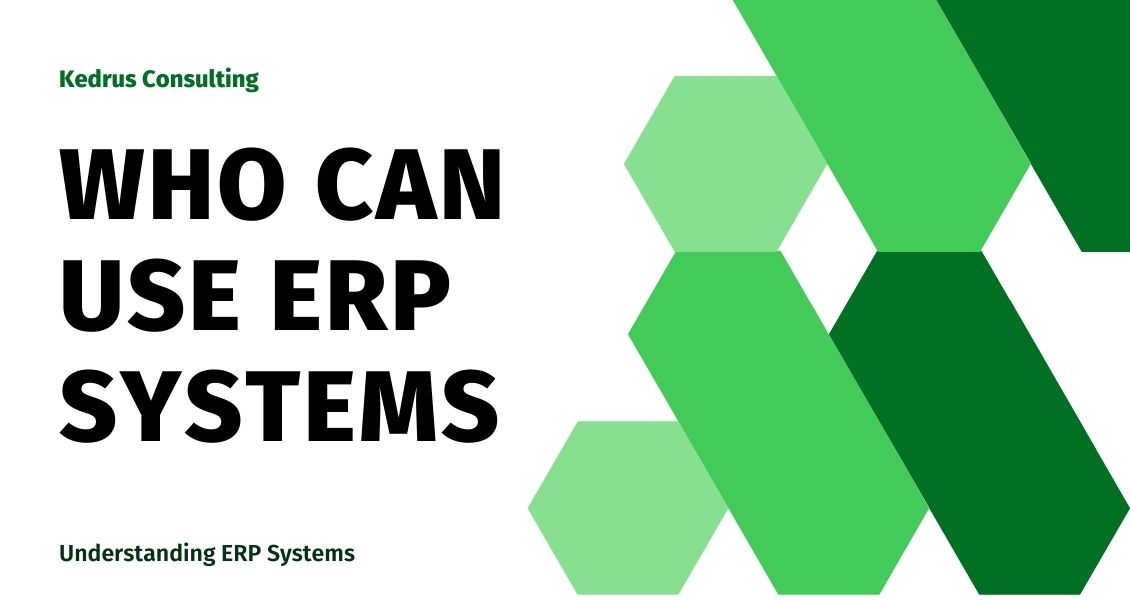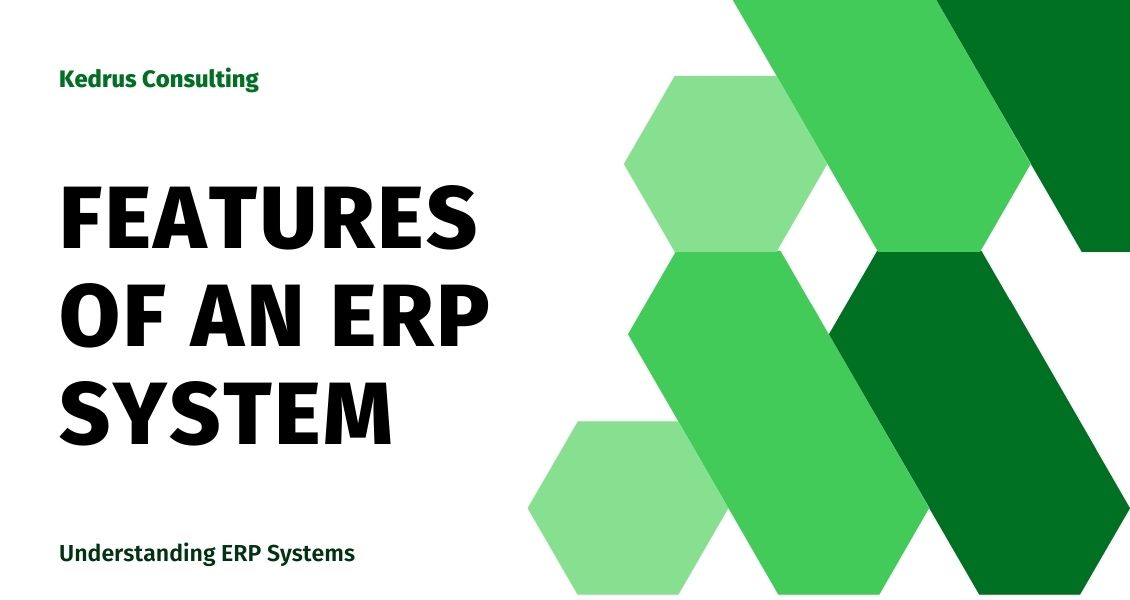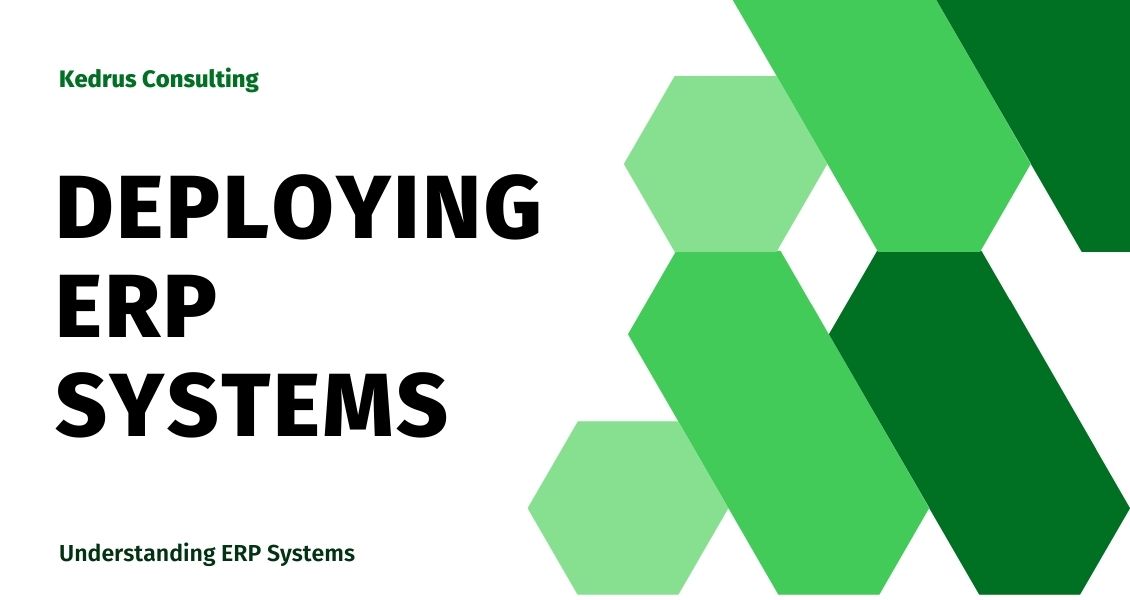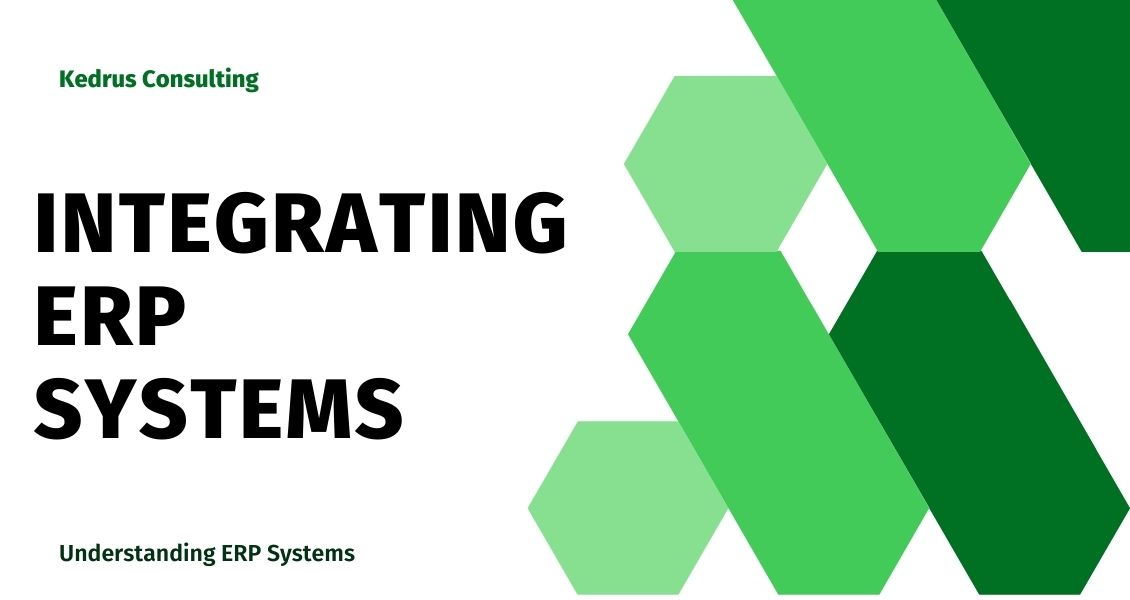What You Should Know About ERPs
- May 19, 2021
- Posted by: Kedrus
- Categories: Business Innovation, Competitive research, Digital Transformation, Innovation
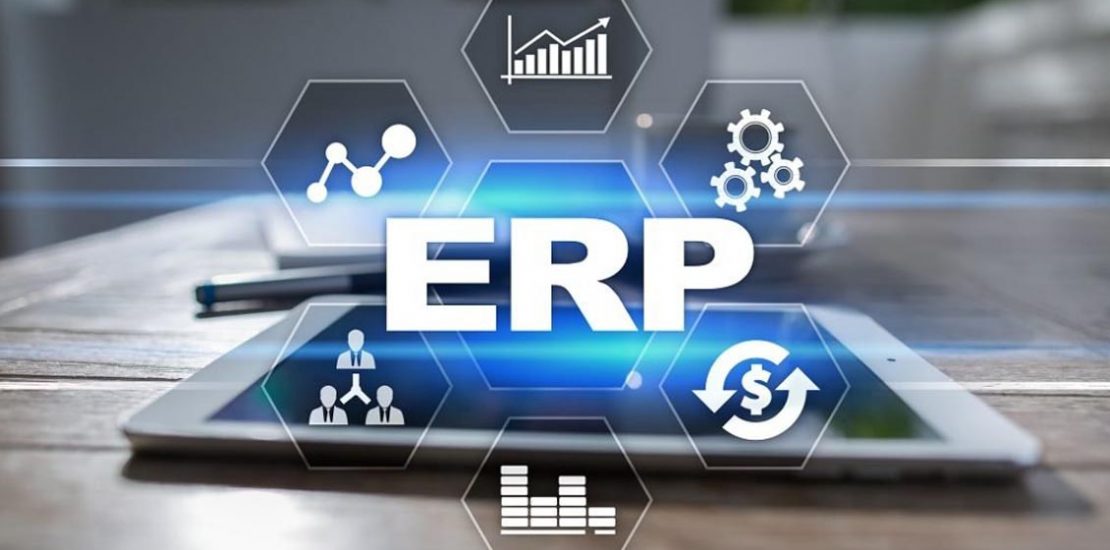
Every organization relies on its ability to deliver over and beyond customer expectations as the basis for succeeding in business. When a company has mastered this secret, they are often rewarded with consistently exceeding their projected revenues and this often results in happy shareholders going home with fat bank accounts.
However, what is required to attain such a level is often not easily accessible to most organizations. A key factor we have come to find that contributes to achieving business excellence is the ability to gain full control of business processes and accurately determine expected outcomes.
Companies are able to achieve this by making use of software that can manage their day-to-day business activities such as accounting, procurement, distribution, production, and back-office. These capabilities are only available with ERP systems. This is one major way through which leading business organizations manage to dominate their industries and consistently exceed customer expectations.
You have most likely heard of ERP systems prior to this moment. There are several conversations that have been held around what they entail and how they work. But we would quickly introduce to you what our perspective on the subject is.
ERP systems provide companies with the tools they need to make business activities seamless across all departments. ERP means Enterprise Resource Planning.
We think of ERP systems as a suite of integrated applications that allow organizations to manage, automate and connect all activities within their organization to a single platform providing a unified system for accessing all business information.
ERP systems have dashboards where users can look at real-time data collected from all across the business to measure productivity and profitability.
The advantage of being able to x-ray key business processes to identify loopholes or defects and predict the required action to take is a major reason why organizations implement ERP systems. With ERP, these organizations are able to bring an end to the fragmentation of current systems, achieve standardization of processes and gain more visibility on data across the entire organization.
A good example of the benefit of an ERP system is seen in a manufacturing company that has grown through acquisitions. The company is likely to find that different units use different methods to build the same product. An ERP system will help to standardize their processes and by using an integrated suite of applications they can save time, increase productivity, and reduce headcount. It would also enable collaboration and scheduling of production across different units and sites.
WHO CAN USE AN ERP SYSTEM?
Businesses of all types can make use of ERP systems irrespective of their industry or specialization.
Some of the industries ERP solutions have been built for include
Retail
Manufacturing
Pharmaceuticals
Hospitality
Aerospace
Distribution etc.
In recent times, ERP solutions are being customized to suit the needs of diverse industries. Whatever niche you are in, you will definitely find something that meets your needs.
FEATURES OF ERP SYSTEMS
Most ERP systems have features that cater to different aspects of a business like accounting, finance, manufacturing, HR, marketing, etc. But recently, we have found that most vendors now offer customization and configuration features to allow customers to adapt their ERP systems to suit their unique business needs.
The modularity of ERP solutions has made it possible for companies of small sizes to take advantage of the capabilities of an ERP solution. By choosing to go for the specific features that are most crucial for their present needs and then upgrading at a later time when they have more capacity.
Some of the key features of a standard ERP system Include:
1. Unified Platform: Without ERP, most organizations are unable to unify data from across different departments. This makes it difficult for individuals from different units to access the information needed to make decisions as to when it is needed. The fact that data is siloed would also lead to inefficiency, missed opportunities, and departments working at cross-purposes. But with ERP systems organizations can have a central view of essential financial, operational, and business data that can be shared across the organization in near-real-time.
2.Business Intelligence: ERP systems provide the means to develop business intelligence by turning data generated from its processes and activities into reports and insights that a company can use to re-allocate resources or capitalize on new market opportunities, among other actions
3. Automation: ERP provides the ability to automate repeatable business tasks. With automation, organizations can minimize the time spent on manual data entry, reduce errors, and allow employees to focus on more value-added tasks. Some of the tasks that can be automated with ERP systems include payroll, order processing, invoicing, reporting, and more.
4. Reporting: Reporting is one of the major reasons why most organizations go for ERP systems. The reporting modules in an ERP system compile information about business operations into reports that empower stakeholders to make more informed decisions, enhance business processes and identify problem areas before the business suffers. Reports may include visual representations, such as charts, graphs, and dashboards, hopefully revealing trends and patterns to improve business results. ERP systems are designed in such a way that data entered by one user is available across the organization. So, for example, line-of-business executives could automatically receive up-to-date reports on cash flow and other metrics to inform decisions.
5. Accounting: Most ERP system features deliver the ability to track, store and analyze financial data, such as accounts payable (AP), accounts receivable (AR), general ledger (GL), budgets, and forecasting. Time is money, and month-end closes always take longer than CFOs would like. This functionality decreases the time it takes to reconcile and closeout monthly financial statements. It’s critical for companies looking to move to continuous month-end closes.
There are a host of other features you will find on an ERP system depending on what your desired specifications are. As a standard, we advise that users take their time to carefully consider all the requirements their organization would be needed before exploring any ERP solution. This way they are armed with the right details that will guide them in choosing a solution that suits their unique business needs.
ERP DEPLOYMENT
Now lets discuss what you should look out for before you go about deploying an ERP solution for your organization
When it comes to deployment, there are different options organizations can consider. They include:
On-Premise deployment: When an organization chooses to deploy their ERP solution on-premise it basically means that they would have to use their servers to run the system. The ERP systems would be hosted and maintained by the company’s own server.
Cloud-based deployment: When an organization chooses to deploy their ERP system on the cloud, it means that they are allowing a third-party hosting platform to handle hosting and maintenance of the ERP system for them. A cloud-based ERP system allows users to access the system anywhere they are just with an internet connection. This is not possible with an On-premise Hosted system. Most cloud-based deployments are either in form of ERP SAAS or through a third-party cloud hosting service.
Hybrid deployment: Organizations that choose to adopt Hybrid deployment are those that seek to host their ERP system both on-premise and on the cloud as well. This is often the case when an organization wants to maximize the safety of data that comes with an on-premise system as well as the ease of accessibility that comes with cloud hosting.
ERP INTEGRATION
Finally, we would look at how you can integrate your new ERP system with your previous software solution.
It’s very likely that most organizations make use of some software to handle one or more business processes. For instance, most small businesses use Quick books to handle their accounting function.
This usually requires some form of integration with the ERP system in other not to lose useful data. An ERP integration allows you to apply your current software to your new ERP so that the features can work together holistically.
Before choosing an ERP system, it is very necessary to confirm from the vendors whether the system provides for configurability or customizability. This is very crucial as it would determine if your ERP system has the capabilities to integrate with the previous solution that your organization has been using.
A customizable solution can be amended using code to add specific capabilities and features. This is a more labor-intensive process than implementing requirements for a configurable solution, which meets requirements without using code by using tools that exist in the application. Therefore, depending on the IT and development resources that are available at your company, you may prefer a configurable solution over a customizable one or vice versa.
Adequate planning is compulsory when making the decision to integrate ERP with other software solutions in other to ensure compatibility and a seamless process. Most ERP integration projects fail due to a lack of proper planning from the organizations involved which often results in not making provision for the necessary IT capabilities that are required for successful integration. Planning is so critical when it comes to choosing and deploying an ERP system.
Now in conclusion we have come to understand what ERP systems are and how they help to transform business outcomes for organizations. By automating business processes, reducing error, and providing business leaders with useful insights that facilitate decision-making, ERP systems have become the leading business solution that drives outstanding performance for most organizations.
What’s most interesting is the fact that, due to the range of customization and configuration options available, most organizations can tailor ERP solutions to their specific needs and to the existing systems that they already use.
Have any questions on deploying & implementing ERP solutions?
Then reach out to us via our website: www.kedrusconsulting.com or call us on 080 6349 5382


